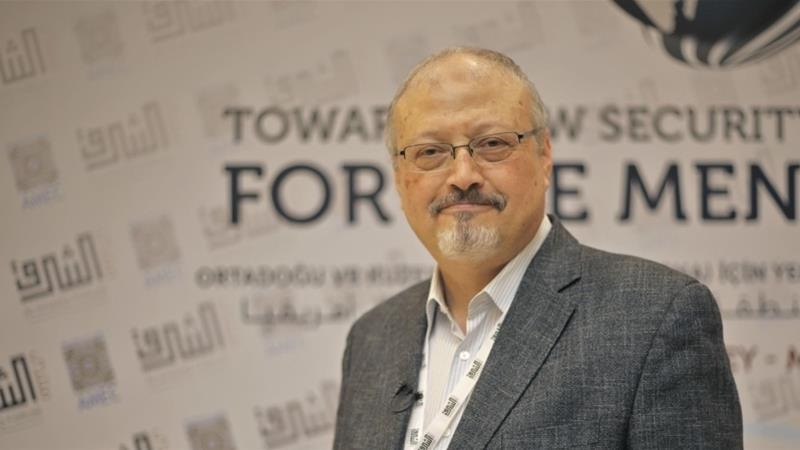A Turkish court is set to open the trial of 20 Saudi officials indicted over the killing of Saudi journalist Jamal Khashoggi.
The trial will begin at Istanbul province’s main court in the district of Caglayan at 10am local time (07:00 GMT) on Friday morning, officials at the Istanbul prosecutor’s office told Al Jazeera.
Khashoggi, a 59-year-old Washington Post columnist, was killed at the Saudi consulate in Istanbul on October 2, 2018, after he entered the premises to obtain paperwork for his planned marriage.
Turkish officials say Khashoggi’s body was dismembered at the consulate by the killers and his remains are yet to be found.
In March, Turkish prosecutors indicted 20 Saudi nationals over Khashoggi’s killing, including two former senior aides to Saudi Crown Prince Mohammed bin Salman (MBS), the kingdom’s de facto ruler.
Indictment
According to the indictment, Saudi Arabia’s former deputy intelligence chief Ahmed al-Assiri is accused of establishing a hit team and planning the murder of the journalist, who wrote critically of the Saudi government.
The former royal court and media adviser, Saud al-Qahtani, is accused of instigating and leading the operation by giving orders to the hit team.
Other suspects are mainly the Saudi officers who allegedly took part in the assassination operation. The Turkish prosecutors have already issued arrest warrants for the suspects.
Andrew Gardner, the senior Turkey researcher of UK-based Amnesty International, said there was an expectation the trial would shed light on new evidence and also interrogate the evidence already available.
“This trial and other efforts by the Turkish authorities have been important in keeping the murder in the spotlight, not allowing it to be forgotten,” Gardner told Al Jazeera from Istanbul.
“This trial is not replacement for a UN-led international investigation. Hopefully it will be just another stepping stone on the road to ensuring such a probe takes place. And in that sense it is incredibly valuable,” he added.
Global backlash
The assassination of Khashoggi, who was a resident of the United States, prompted a worldwide backlash against Saudi Arabia and caused lasting damage to MBS’s image in the international arena.
The CIA reportedly concluded that the crown prince ordered the killing, an accusation denied by the government in Riyadh.
Agnes Callamard, the United Nations’s special rapporteur on extrajudicial, summary or arbitrary executions, also found “credible evidence” that MBS and other senior Saudi officials were liable for the killing, in an investigative report published in June 2019. Callamard is also expected to be present at Friday’s trial.
The Saudi government called the assassination a “rogue operation” after repeatedly denying any involvement in the incident for weeks.
Ankara’s ties with Riyadh came under intense strain after the killing of the journalist, who was personally known by Turkish President Recep Tayyip Erdogan.
Erdogan has said the killing was ordered at the “highest levels” of the Saudi government.
In December, a court in Saudi Arabia reportedly sentenced five people to death and three to jail time for the murder after trials that took place behind closed doors.
According to Amnesty’s Gardner, a key problem in investigating the murder of Khashoggi has been a lack of cooperation by the Saudi authorities and the absence of the people accused.
“And that really underlines again how much a UN-led international investigation is required. For that, the cooperation of all parties is needed with the Turkish and Saudi authorities sharing all the evidence they collected,” he said.
In May, Khashoggi’s son Salah said in a statement his family had forgiven his father’s killers.
Source: Al Jazeera






 WhatsApp us
WhatsApp us 

